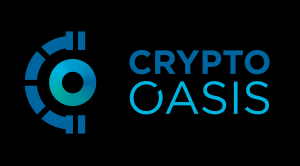
Secretary Antony J. Blinken with Julian Pecquet of Jeune Afrique
Via Translation
QUESTION: Four countries in four days. Thank you, Mr. Secretary of State, for taking the time to talk to us during your visit. Let’s start with Nigeria. Despite its economic dynamism and President Tinubu’s promise to double the GDP within eight years, the country is ranked as the fifth most violent country in the world by the ACLED group, which you must be aware of. How does the Biden administration propose to help the country improve its security situation and achieve its economic potential?
SECRETARY BLINKEN: You know, there’s an approach, a partnership that needs to be comprehensive. Obviously, there is support through programs to strengthen Nigerians’ capacity to address security challenges, whether it’s in terms of intelligence, equipment, or training. All of that is very important. We’re trying to do this in greater depth, but at the same time, there needs to be an approach that takes everything into account. For example – and by the way, we were, for example, in Côte d’Ivoire just before coming to Nigeria, and we saw that an approach that takes into account the needs of the community, that tries to create a more positive relationship between security forces and the community in question, also has a very important impact on controlling extremism, terrorism, and crime efficiently. So that is important.
And it’s also necessary to try to address the root causes that essentially take choices away from people, which leads them to choose crime, terrorism, extremism. Hence everything we do not only in terms of aid and assistance but especially in terms of investments, creating economic partnerships, establishing economic infrastructure that can create opportunities not only in major cities but throughout the country.
All of this is a process. It takes time, it doesn’t happen immediately, but it starts with a comprehensive vision of how to tackle the problems – yes, at the security level, but also in a more expansive, comprehensive way.
QUESTION: You talked about the need to engage with the putschist regimes in the Sahel, including in Niger. With Mali and Burkina Faso, this country has formed a defensive pact, as you are well aware, the Alliance of Sahel States. Is this potentially a legitimate regional grouping, or is it too close to Russia? And more generally, how do you avoid a new fragmentation of Africa that could resemble the Cold War with its blocs?
SECRETARY BLINKEN: Obviously, we are very concerned about the developments we have seen in Mali, in Burkina Faso, and more recently in Niger. There is a timeline for a return to civilian governance for the first two, which is very important to us, and which I believe is crucial for the countries in the region as well. So, that’s what we want to see. In Niger – by the way, I was in Niger with President Bazoum before the coup, a month before, a few weeks before, and already it was a positive example of what we could do together to address both security and economic challenges, and others as well. In this regard, the role of ECOWAS is mainly to try to convince the putschists to return to constitutional order within a very clear and limited timeframe. I believe that’s essential.
There was a meeting with President Tinubu as the chairman of ECOWAS late last year, precisely to try to establish this process. And for us, the United States, if Niger returns to the path of constitutional order and democracy, obviously, we are ready to lift sanctions. We are ready to reinstate the programs we shared against terrorism, for security. It all depends on the concrete steps the putschists take. I have some hope that it can move in a better direction, but I don’t see the evolution towards a new order or a new configuration of states.
We have seen something else in Mali, in Burkina Faso. When they, and others, call on external forces like Wagner, for example, to try to address the security problem, what do we see? We see that the problems become even more serious, more difficult – violence, extremism, terrorism in the states that have requested the help of Wagner. It’s increasing, not decreasing. And obviously, the exploitation of resources, the exploitation of people. We see that too. So it’s not the answer, and we know it. It’s not just because we say it; we know it from experience in these countries. The answer is a return to constitutional order, to democracy, but also to governments that listen and respond to the needs of the people.
None of this is easy. The problems, the challenges are very significant. But we have now seen what happens when we make the other choice, and it doesn’t go well, on the contrary, the situation only worsens, especially for the people in question.
QUESTION: You are now traveling to Angola at the end of your trip. The country remains ravaged by corruption. Why is President Lourenco considered a more acceptable, and above all more reliable partner, compared to his predecessor Dos Santos? And what is the current state of American relations with, after all, a former Cold War adversary?
SECRETARY BLINKEN: Actually, let me tell you this: What we see with President Lourenco is someone who is actually fighting against corruption. And we see that he has followed a very important path that both recognizes corruption as a poison for development and for creating opportunities, and takes very concrete steps to combat it. At the same time, it is also necessary to create, I think, a more open system in order to truly address corruption. For example, civil society has a very important role to play. For that, there needs to be even more space for civil society, for the media, who also have a critical role to play in countering corruption, in shedding light on it, and in combating it. But we see a very positive development in Angola, especially in this fight against corruption.
And we also have partnerships with Angola, with Zambia, with the Democratic Republic of the Congo, with the very, very important Lobito Corridor infrastructure project which will bring a transportation and digital communication system to the people in these three countries and throughout the African continent, supporting a very important economic revolution.
Something that has been lacking in Africa and that is now emerging is having an internal market which would be as important, if not more important, than the external market. The fact that African countries historically have more trade and investment with countries outside of Africa than among themselves is a missed opportunity. Now, with a growing free-trade system in Africa, especially with the necessary infrastructure for it to work, we see a future where economic growth has much more significant possibilities. And especially the connections we make between countries, with Angola playing a very important role in this corridor, I believe it holds a lot of promises for the future.
Something else with Angola: President Lourenco has been playing a very important role in trying to manage crises through diplomacy, especially what is happening in eastern Congo and Rwanda, where the process established by Angola is very important to try to find a diplomatic way forward and not through war. So all this to tell you that he is becoming an increasingly important partner. President Lourenco came to the White House and met with President Biden last year, and President Biden asked me to follow up. That’s why we are visiting Angola.
QUESTION: Very well, thank you very much, Mr. Secretary.
SECRETARY BLINKEN: Thank you.
Official news published at https://www.state.gov/secretary-antony-j-blinken-with-julian-pecquet-of-jeune-afrique/
The post Secretary Antony J. Blinken with Julian Pecquet of Jeune Afrique first appeared on Social Gov.
United States - Social Gov originally published at United States - Social Gov







